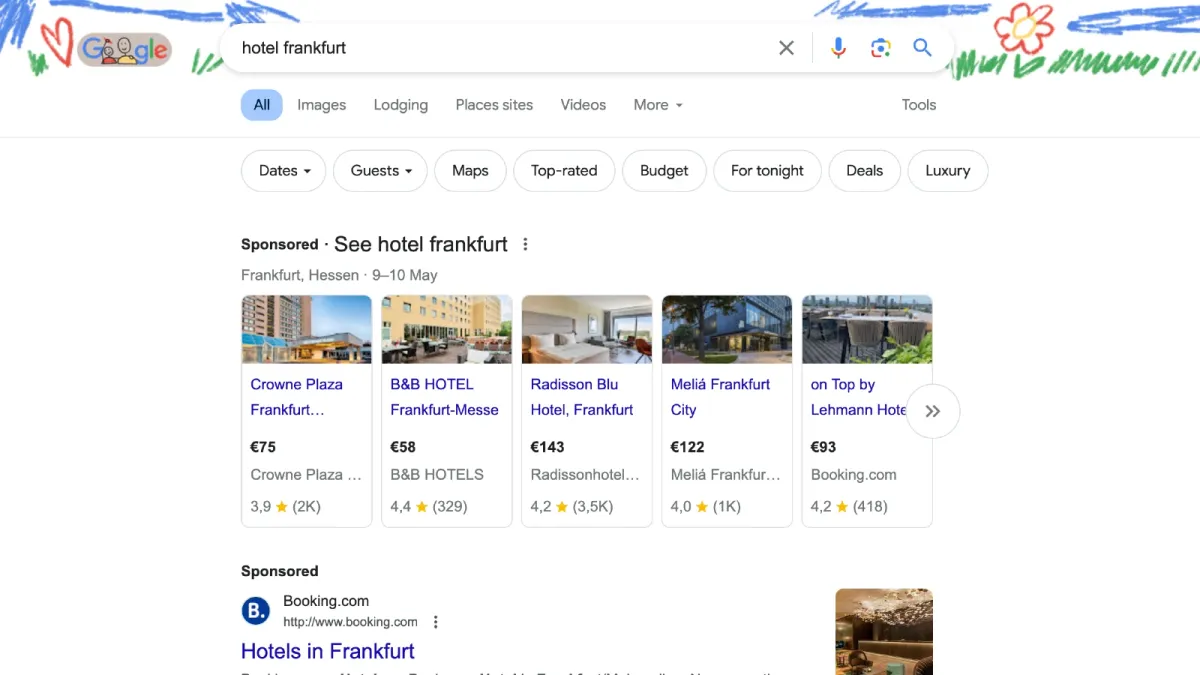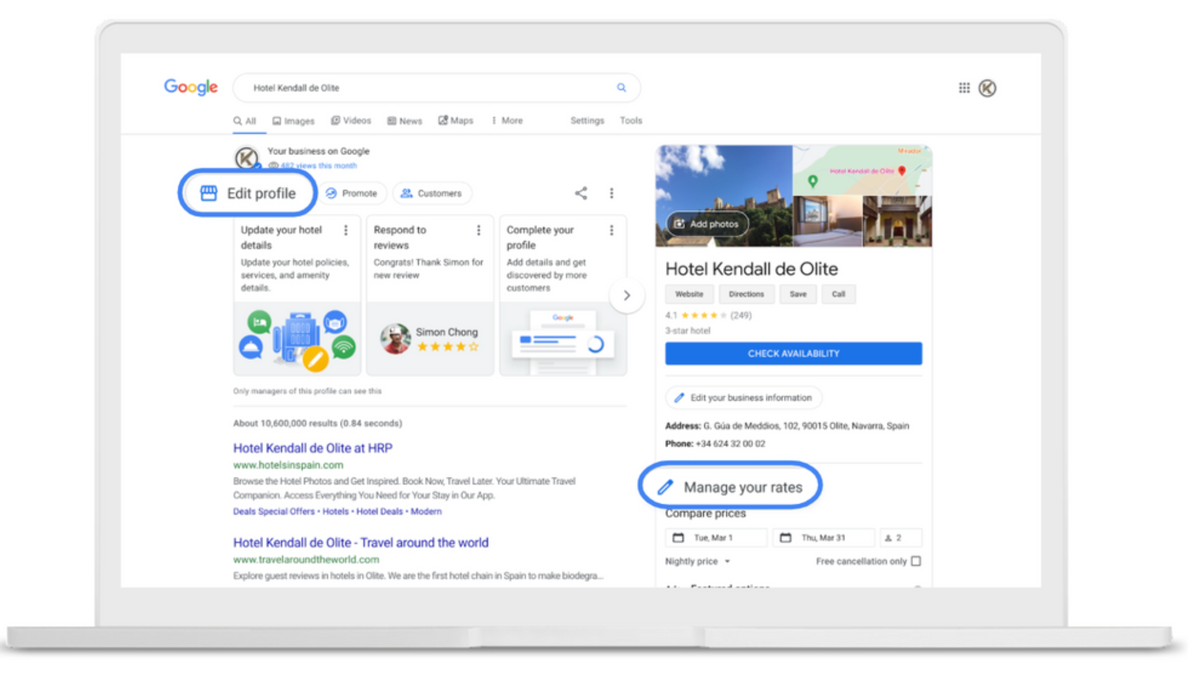
Javier Delgado from Mirai, a hospitality technology company, this week published an article analyzing the impact of the Digital Markets Act (DMA) on Google Hotel Ads in the European Union (EU).
The DMA is a legislative act adopted by the EU in July 2023. It aims to promote fair competition in digital markets by designating certain large online platforms as gatekeepers and imposing specific regulations on them.
How does the DMA affect Google Hotel Ads?
Google, designated as a gatekeeper under the DMA, can no longer prioritize its own services like Google Hotel Ads in search results for hotels within the EU. This has led to several changes:
Reduced Hotel Visibility: Users can no longer see hotel offers with availability and pricing directly on the search engine results page (SERP). Additionally, features like location via Google Maps and "hotel packages" showcasing various options are no longer available.
Less User-Friendly Booking Process: Clicking on a hotel listing now redirects users to the property's website or an intermediary website (e.g., Booking.com) instead of displaying booking options directly within the search results. This can lead to a less streamlined user experience with additional clicks required to complete a booking.
 PPC LandLuís Daniel Rijo
PPC LandLuís Daniel Rijo
Impact on the Hotel industry
The changes implemented due to the DMA have significant implications for hotels in the EU:
Decreased Clicks and Direct Bookings: According to Mirai's data, hotels in DMA regions have experienced a 30% drop in clicks and a 36% decrease in direct bookings compared to non-DMA markets. This suggests a potential shift towards users booking through intermediaries, impacting hotel profitability.
Increased Dependence on Intermediaries: With reduced visibility and a less user-friendly direct booking process, hotels might become more reliant on Online Travel Agencies (OTAs) like Booking.com and Expedia for bookings. This can lead to higher commission fees for hotels.
Uncertainties and potential future developments
The article raises several uncertainties regarding the future of hotel distribution in the EU:
Booking.com's Gatekeeper Status: Booking.com, a major player in online hotel bookings, is not currently designated as a gatekeeper under the DMA. The EU will decide on its gatekeeper status by May 13, 2024. If classified as a gatekeeper, Booking.com might also face regulations that could potentially restrict its prominence in search results.
Long-Term Impact on User Experience and Competition: The current situation raises concerns about a potentially less convenient user experience for hotel searches within the EU. Additionally, the increased reliance on intermediaries could stifle competition within the hotel distribution landscape.
The implementation of the DMA in the EU has significantly impacted hotel distribution on Google Hotel Ads. Reduced visibility, a less user-friendly booking process, and a potential increase in reliance on intermediaries are key challenges for hotels. The future impact on user experience, competition, and Booking.com's role in the market remains to be seen as the EU continues to enforce the DMA regulations.

